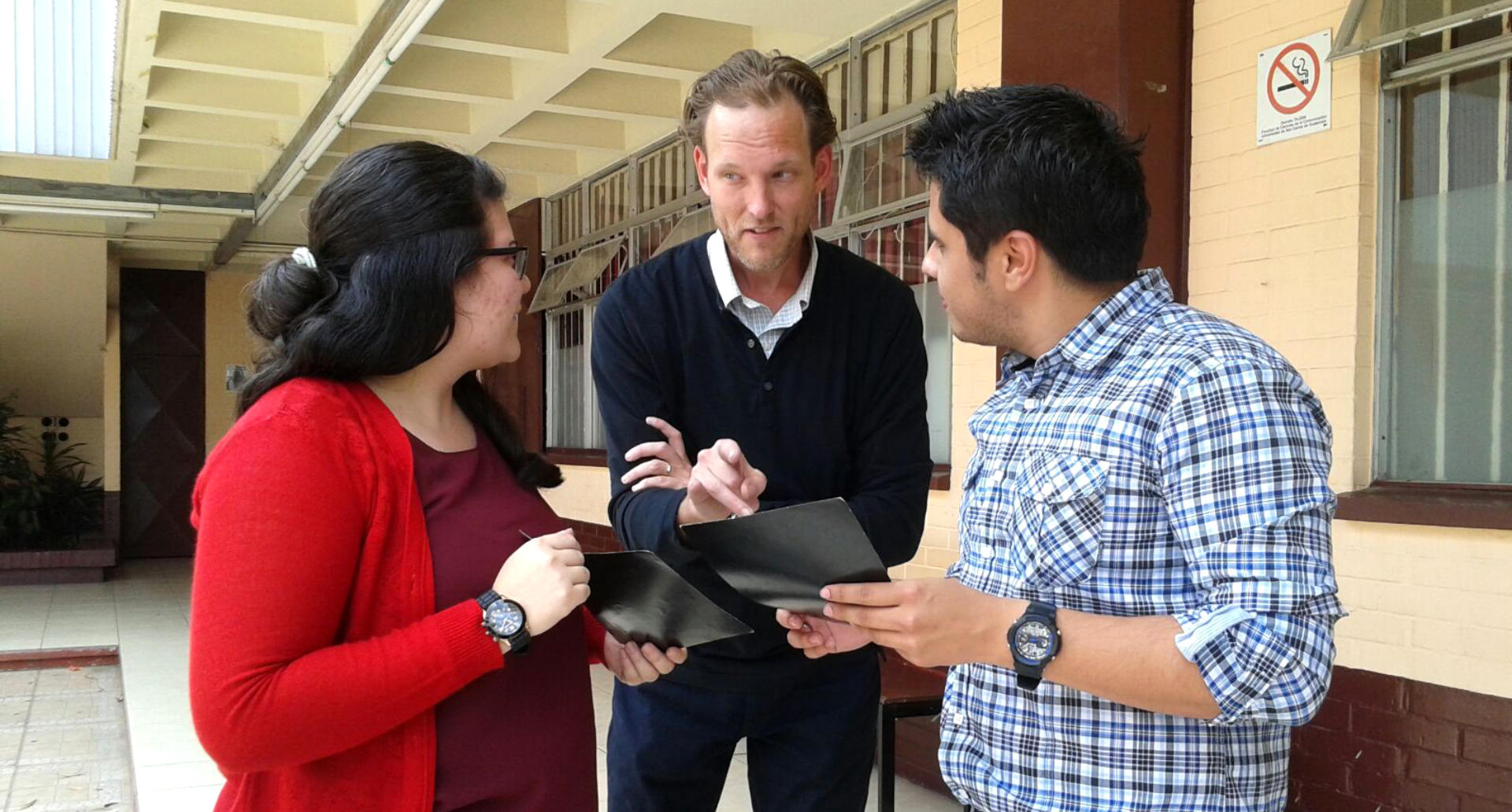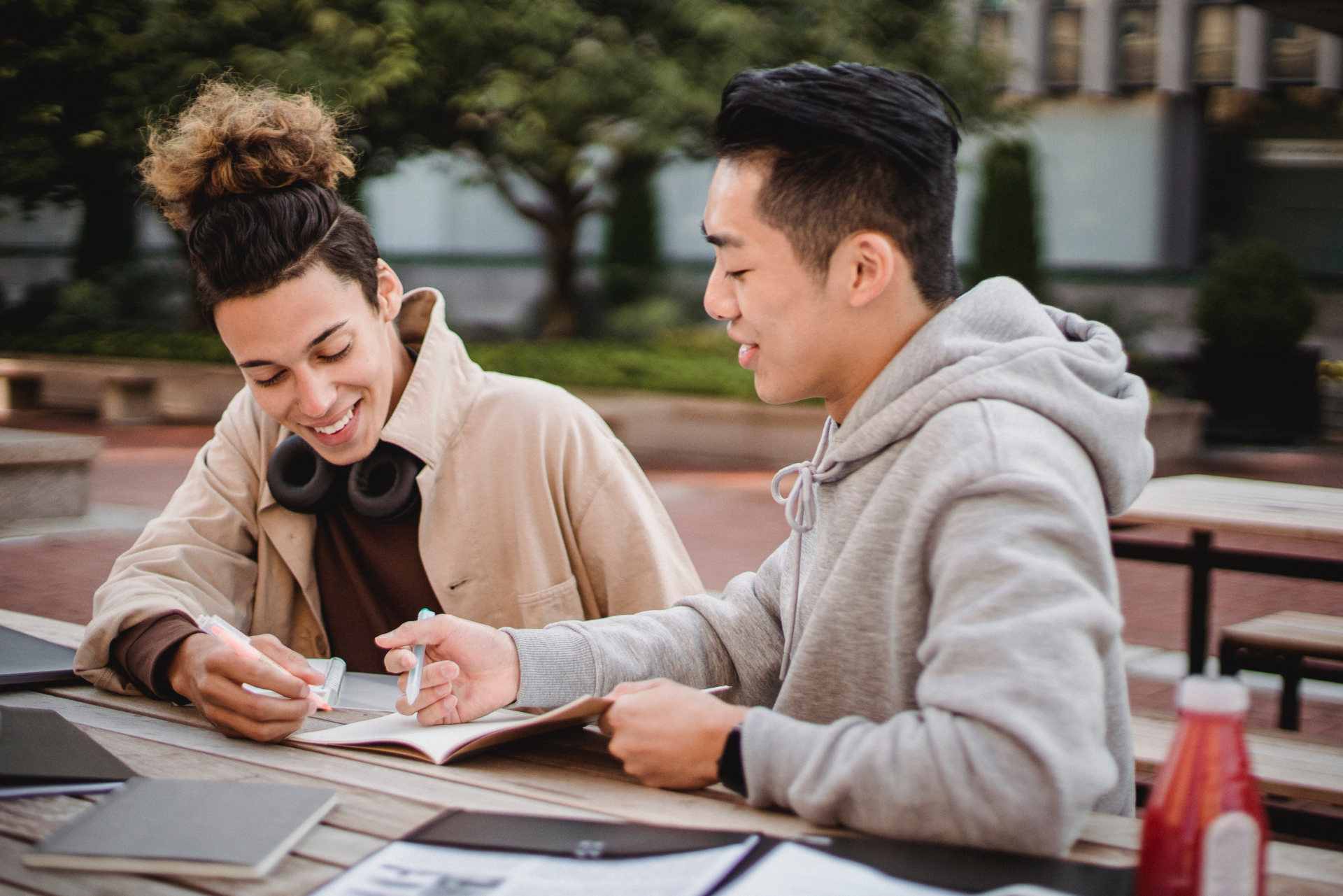
Study of the U.S. Institutes for Scholars (SUSIs) are intensive six-week post-graduate level academic programs whose purpose is to provide a foreign university faculty and other scholars the opportunity to deepen their understanding of U.S. society, culture, values, and institutions. The ultimate goal of the Institutes is to strengthen curricula and to enhance the quality of teaching about the United States in academic institutions abroad. Each Institute will include an academic residency component and up to two-weeks integrated study tour to another region of the United States.
Themes of the U.S. Institutes:
American Culture and Values
The Institute on American Culture and Values will promote American culture, leadership, and values by providing a multinational group of 18 experienced and highly motivated foreign university faculty members and other specialists with a deeper understanding of U.S. society, civil society institutions, democratic principles, human rights, and the rule of law. The Institute will examine the concepts of American exceptionalism and American resilience through social, economic, political, and religious contexts in which, historically, various cultures have manifested and shaped contemporary U.S. culture, values, and society.
Journalism and Media
The Institute on Journalism and Media will provide a multinational group of 18 experienced and highly motivated foreign journalism instructors and other related specialists with a deeper understanding of the roles that journalism and the media play in U.S. society. The Institute will examine the role of journalists in recognizing and preventing disinformation and will explore strategies for media and information literacy to counter disinformation. Additionally, the Institute will examine best practices in journalism by discussing the rights and responsibilities of the media in a democratic society, including editorial independence, journalistic ethics, legal constraints, and international journalism. In addition, the Institute will examine pedagogical strategies for teaching students of journalism the basics of the tradecraft: researching, critical thinking, reporting, interviewing, writing, and editing. The program will also highlight the impact of technology in journalism, including the influence of the Internet, globalization of the news media, and other changes that are transforming the profession.
Religious Freedom and Pluralism
The Institute on Religious Freedom and Pluralism will provide a multinational group of up to 18 experienced foreign university faculty, scholars, researchers and religious leaders with a deeper understanding of U.S. society and culture, past and present, through an examination of religious freedom as a foundational American value. The program will include a survey of the religious landscape of the United States, including major and minor religious groups; historic religious traditions and contemporary American religious groups will also be included. The Institute will explore both the historical and contemporary relationship between church and state in the United States; examine interfaith understanding and dialogue, religious pluralism, freedom of religion as a fundamental unalienable human right and source of stability; and discuss ways in which religious freedom is protected. In addition, the Institute will examine the intersections of religion and politics in the United States, especially in U.S. foreign policy. Participants will have opportunities to meet with U.S. community leaders of different faiths who advocate for collaboration and tolerance among religious groups.
U.S. Economics and Business
The Institute on U.S. Economics and Business will provide a multinational group of 18 experienced foreign university faculty, researchers, experts and policymakers with a deeper understanding of key components and structures of the U.S. economy as the world’s largest economy. Using a multidisciplinary approach, the program will explore 1) how financial institutions, investors, and businesses interact to support growth and employment and 2) the institutional backdrop that is required to sustain a competitive and strong private sector, including but not limited to corporate governance structures, monetary policy, and the legal and regulatory framework of the business sector. The program will also discuss how the United States, as the leading nation for global trade, influences industries, free markets and financial sectors around the world and advances trade, investment, and capital flows. Participants will be offered a firsthand look at key institutions and stakeholders in the U.S. economy and the opportunity to meet with business and corporate leaders, Wall Street executives and board members, and small business owners, among others.
U.S. Foreign Policy
The Institute on U.S. Foreign Policy will provide a multinational group of 18 experienced foreign university faculty and practitioners with a deeper understanding of new approaches to U.S. foreign policy and how U.S. foreign policy is formulated and implemented. The Institute will include a historical review of significant events, individuals, and philosophies that have shaped U.S. foreign policy. The Institute will explain the role of key players in U.S. foreign policy including the executive and legislative branches of government, the media, the U.S. public, think tanks, non-governmental organizations, and multilateral institutions. The program will also examine current U.S. foreign policymaking and new trends that are shaping policy. Topics such as the concept of American sovereignty, shifting attitudes towards globalism, U.S. foreign aid, the monitoring of foreign investment in the United States, efforts to combat terrorism and radicalization, new trade policies and agreements, immigration and border safety, and cybersecurity will be included. The program will also discuss the reorganization of the North American Free Trade Agreement (NAFTA) and new U.S. approaches to international organizations such as the United Nations (UN), the Organization of Petroleum Exporting Countries (OPEC), and the North Atlantic Treaty Organization (NATO).
Youth, Workforce Development, and Closing the Skills Gap
The Institute on Youth, Workforce Development, and Closing the Skills Gap will provide a multinational group of 18 experienced foreign faculty and practitioners with a deeper understanding of how new socioeconomic trends have changed the concept of work, workforce development, and career paths in the United States. The academic program will include a thorough discussion of the role of U.S. educational institutions, particularly community colleges, in preparing Americans with the skills needed to succeed in multiple industries including business, technology, science, the creative arts, and other emerging fields. Topics such as economic development and advances in technology such as automation, robotics, and artificial intelligence will also be included. The Institute will offer opportunities for participants to research new ideas, in conjunction with American peers, to better understand the evolution of work, the changing demand for skills, and advancements in workforce development through retraining, reskilling, and closing the skills gap.



Download the application form. Please fill out the application and send your application to the following email address: office@fulbright.sk and contact_bratislava@state.gov.
The application period usually opens in late November/ early December to January. Deadline for submission of applications for summer 2023 will be announced in the fall 2022. Incomplete applications and applications received after that deadline will not be considered.
Application cycle is open.
Deadline for submission of the application (the exact date is announced in the fall 2022). Applications are reviewed for eligibility criteria. The most qualified applicants are invited for an interview.
Successful applicants are notified of their nomination. The final stage of the selection process is made by the U.S. Department of State in Washington, D.C.
Successful applicants chosen by the U.S. Department of State are notified.
Administrative steps to process visa applications and departure for the U.S. are taken.
What degree of English proficiency should I have?
You must be fully proficient in English to fully understand lectures, actively participate in discussions, and read and write assignments in English.
I have been to the United States before. Does that mean I cannot apply for this program?
You can apply for SUSIs for Scholars. However, please bear in mind that candidates with little or no experience in the United States may be considered for the program.
How much free time/time for independent research will I have during the program?
There will be some free time during the program as well as some time designated for independent research. However, candidates must understand that this is an intensive academic program and they are expected to participate in all lectures, activities, and scheduled events. Participants in Scholar Institutes may, at their own expense, opt to extend their stay in the United States after the close of their program to the extent allowed by visa regulations.
I am not a college professor; can I be considered for the program?
Yes, you can. Candidates from a variety of professional backgrounds who are professors at all stages of their careers, college and university administrators, practitioners in a designated field, and community leaders will be considered.
If I have relatives in the United States, would I have time to see them?
Because of the intensive nature of the Institutes, participants will not be able to leave the Institute to visit relatives or friends. Participants in Scholar Institutes may, at their own expense, opt to extend their stay in the United States after the close of their program to the extent allowed by visa regulations.
Can a relative travel and stay with me during the Institute?
No. Relatives are not permitted to travel or stay with a participant during the program. There are no exceptions to this rule.
Can I arrive early/late for the Institute?
The U.S. host university is expected to arrange flight itineraries so that participants arrive on the Institute start date. Occasionally, flight schedules necessitate a participant to arrive a day early. Once participants have reviewed their flight itinerary and the U.S. host university has booked the itinerary, the participant is responsible for making and paying for any itinerary changes, the participant chooses to change their plans.
Can I stay in the U.S. after the end of the Institute?
Yes. Under the terms of their J-1 visas, participants generally have up to 30 days after the end of the program to depart from the U.S. However, participants must be aware that they are responsible for all arrangements and expenses after the end of the Institute and will no longer have ECA-sponsored health benefits.
Can I miss one part or component of the Institute?
No, you cannot. All participants are expected to participate in all scheduled lectures, events, site visits, trips, and activities.
Will applicants with disabilities be considered?
Individuals with disabilities, participants from non-elite backgrounds, historically underserved groups, disadvantaged groups, members of the LGBTI community, and ethnic minority communities are encouraged to apply. Care will be taken to ensure that any special requirements regarding diet, daily worship, housing, and medical care are met.
Where are participants accommodated when in the U.S.?
Housing will be in shared university dorms on campus with common bathrooms. Male participants will be housed on one floor and female participants on a separate floor. Most meals will be provided at campus facilities, though participants may have access to a kitchen to cook some meals on their own.